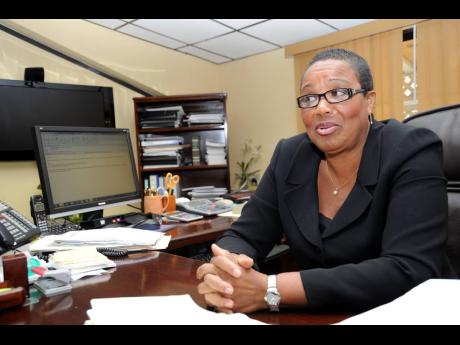Property insurance rate hike coming - Storms to blow away COVID-19 cushion in 2021
Most insured property owners in Jamaica and the rest of the Caribbean dodged an insurance rate increase in 2020, thanks to the COVID-19 pandemic, which sparked lockdowns and other business interruptions that forced large reinsurers to hold off implementing higher charges in the Caribbean region.
But Sharon Donaldson, managing director of General Accident Insurance Company and a vice-president of the Insurance Association of Jamaica, IAJ, says the sector is bracing for the higher rates that are definitely coming in 2021.
“Property rates are definitely going up next year,” she told the Financial Gleaner in an interview.
She explains that the major global reinsurers consider the Caribbean as an insurance pool for the purposes of premiums and claims, and as such when any one country is continuously affected by hurricanes or other catastrophes leading to repeated large insurance payouts, rates will go up throughout the entire region.
“When Swiss Re, Munich Re or Lloyds of London gives insurance support for any one insurance company in Jamaica, they provide insurance support for the entire region. The principle of insurance is that the misfortune of the few will be paid from a fund,” said Donaldson.
“They see the Caribbean region as a fund. Whenever one member in the region has a catastrophe, the rest of us have to pay for it. When Bahamas has had two catastrophes back to back, if they look at premiums from The Bahamas alone, they will never be able to fund The Bahamas again,” she said, referencing the repeated battering the country has received from major hurricanes over the past several years.
The Bahamas has experienced several hurricanes in recent years, including Isaias in 2020; Dorian, which struck as a Category 5 storm in September last year; Irma, a Category 5 hurricane in 2017; and 2016 Matthew, also a Category 5 storm. There were also major storm disasters in the Bahamian archipelago in 2015, 2012 and 2011.
“When catastrophes start to hammer the region, and you are having back-to-back catastrophes, the pool of the fund is beginning to shrink. As a result of that, notwithstanding that Jamaica has not had a catastrophe in probably 10 or 15 years, the insurance premiums are going to go up because Barbados or The Bahamas alone cannot replenish the pool. In the region we are going to have to pay for the losses of one member,” Donaldson added.
The IAJ vice-president, representing the general insurance segment of the industry, says increased rates are sometimes the price paid to keep reinsurers doing business underwriting insurance coverage in the Caribbean.
“What you don’t want is, for example, Munich to say, let me come out of this region and go somewhere else. Munich is a business. They want to ensure that the premiums they get will cover the losses they have to pay and leave something for them. If it is otherwise, there is no point in them being here,” she explained the perspective of the reinsurers.
She contends that if the pool of premiums for the region is in excess of the claims, the reinsurers will pay those claims and stay in the region, resulting in a positive outcome for the reinsurers, the local insurance industry and policyholders.
In terms of the size of the pending rate jump, Donaldson says property owners should expect premiums to go up by as much as six per cent, although reinsurers had given notice of an increase by as much as 15 per cent for 2020.
“The reinsurers would have done their calculations. We should have done it for 2020. It did not happen. It is probably going to go up by five or six per cent,” said the insurance executive.
“We started trying to implement the increase gradually, then COVID intervened. At that point, we felt that the best strategy was to renew (policies) as expiring, without any increases, because companies were suffering, employees were suffering, they were not getting any salary increases and were being sent home in some instances, with only one member of the family is working,” she told the Financial Gleaner.
The local insurance companies decided at the time that rather than pushing increased rates, they would negotiate with the reinsurers and seek to focus on policies being renewed, she explained.
“Where we could get an increase, we would take it. So, we did not get to the rate that the reinsurers wanted but in discussions with them, they understood. But they are expecting it to happen for 2021,” she warned.
As for the continuous rains and flooding over the past few weeks, Donaldson said insurers are not overly concerned from a business perspective as they do not expect any massive claims from the current flood events.
Historically, those properties that suffer severely from flood damage are usually not insured, she said.

